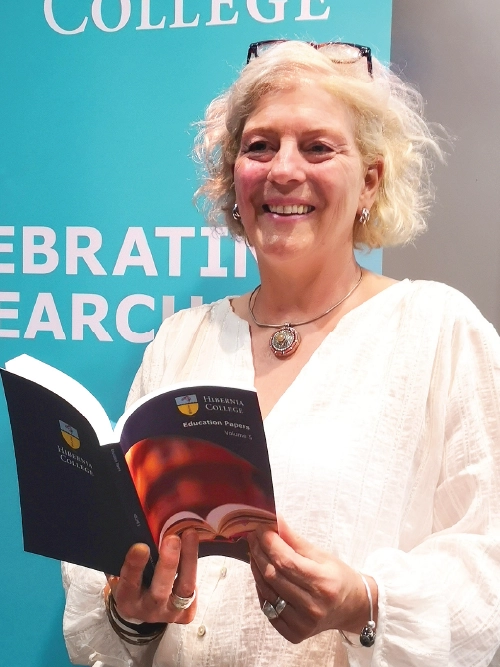
Research profile
Pippa Rapoport
PME in Post-Primary Education
Pippa has a lifelong passion for teaching and loves the communicative aspect of working with young people.
Research Paper Title
Progress Through Collaboration: An Integrative Literature Review Exploring Teachers’ Roles in Formative Assessment and Effective Feedback
Abstract
Engagement with formative assessment is a still emergent classroom practice that is assuming an increasing importance in contemporary teaching classrooms. The practice is somewhat open to diverse interpretations, and its many applications appear diffuse. Formative assessment is not a homogenous concept that yields consistent results but is a complex, subjective process that is dynamic and evolving. Teacher identity assumes a central importance to this practice, but the question of ways in which this supports and utilises formative assessment to its fullest extent is an open one. The necessity for feedback is, however, clearly evident in meeting learner needs and supporting progression.
Biography
Pippa holds a degree in French Law (1992) from Université de Paris 1 PanthéonSorbonne and a Diplôme Supérieur d’Etudes Françaises Modernes (1999) from Alliance Française, Kenya. She graduated with a BSc (Hons) in International Studies (2012) from the Open University. Originally from a legal background, Pippa worked in an international law firm in Paris before leaving for Kenya for eight years. While in Africa, she mainly taught French at the Alliance Française in Nairobi. Since returning to Ireland, she has been teaching French both privately and in post-primary schools. Pippa graduated with a Professional Master of Education (PME) from Hibernia College in 2021. She has a lifelong passion for teaching and loves the communicative aspect of working with young people. She is presently working in the Presentation Secondary School in Thurles, County Tipperary.
Research motivation
Can you tell us a bit about your research project?
Engagement with formative assessment is a still emergent yet influential classroom practice that is assuming an increasing importance. The practice is currently somewhat open to interpretation and its many applications appear diffuse. Inspired by the dichotomy that exists between personal beliefs and professional teacher identities, I was prompted to examine the subject in closer detail. My research led me to study specifically chosen peer-reviewed papers which examine the many perspectives that encompass formative assessment and feedback within the classroom setting. Over the course of this study, I realised that teacher identity assumes a central importance that is not fully appreciated in terms of how formative assessment is utilised to its fullest extent. The necessity for feedback to meet learner needs was evident from the findings.
What motivated you to undertake this research?
As a teacher I have always been open to innovative ways of teaching and learning. Formative and summative assessment are relatively new concepts yet many teachers have been using them throughout their teaching careers. The Junior Cycle has brought in many new ideas and concepts concerning assessment and feedback and I wanted to look at a broad range of peer reviewed literature and combine findings with my own subjective analysis.
What impact has it had on your practice?
Since undertaking this research, I find my teaching methodology more flexible and the process more holistic because students feel stimulated and more responsible for their learning. Teaching and learning seem to be a more fluid exercise. Students are involved with the planning and assessment of lessons and feedback is paramount not only for the students but for me as the teacher; I regularly ask them for feedback. This has created a pleasant yet dynamic atmosphere of teaching and learning.
How important do you feel research will be in your future practice?
Research is incredibly important however it is realistically difficult to continue research whilst planning, teaching and carrying out daily school life. Having set times for research incorporated into teachers’ schedules would be of benefit.